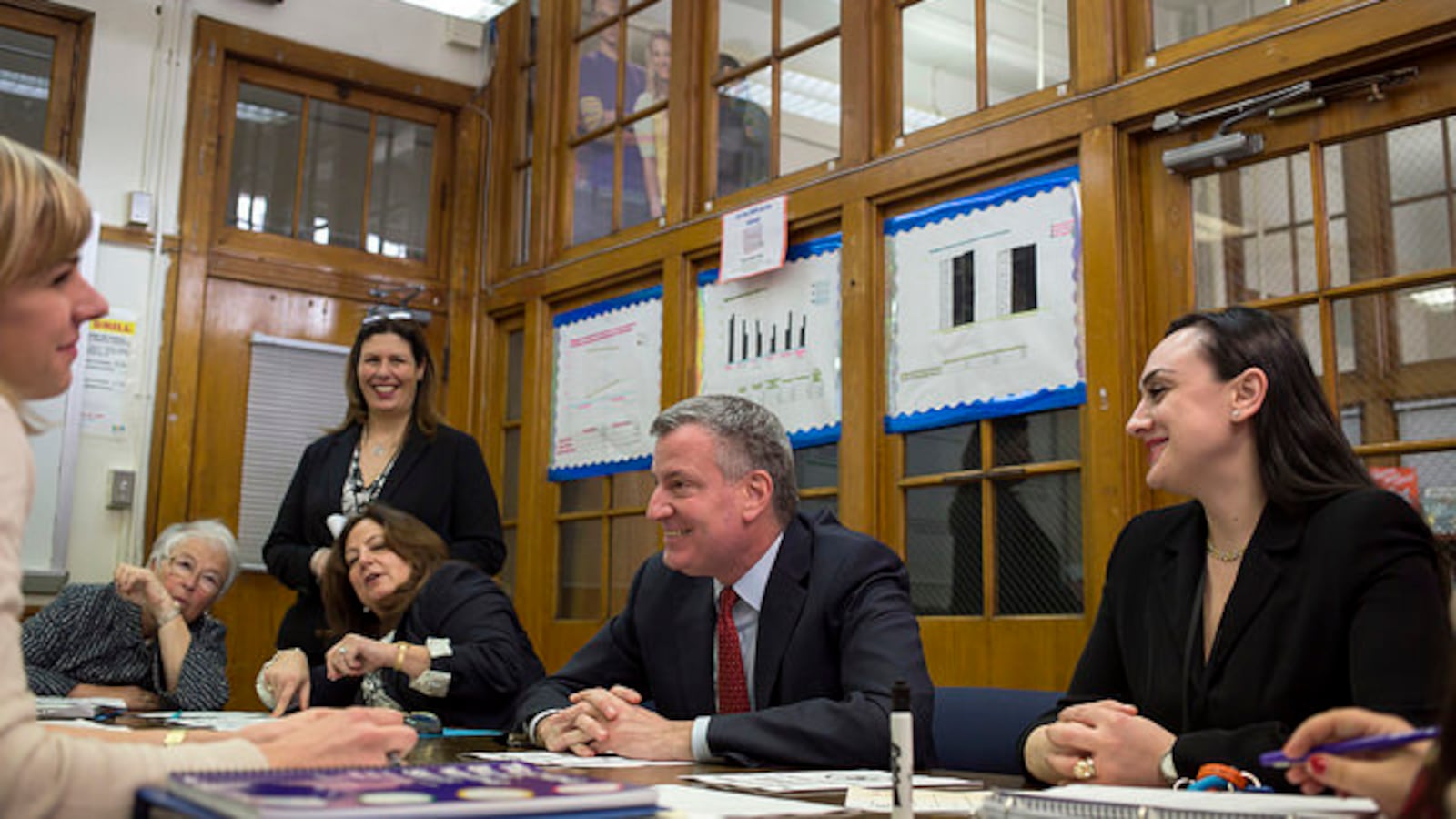Dozens of low-performing schools in Mayor Bill de Blasio’s Renewal turnaround program will continue to receive extra social services and larger school budgets, even as the city is expected to phase the program out.
The education department has spent roughly $750 million on pairing struggling schools with nonprofit organizations that provide extra counselors and other social services; boosting their budgets; and offering extra academic help including leadership training and coaches to help improve teaching.
But the fate of the turnaround program is unclear, leaving school staff wondering whether this flood of resources could soon evaporate. And while the city appears poised to wind down the Renewal program, which has shown mixed results at best, the backbone of that strategy will remain in place, according to multiple sources, including a senior education department official.
Specifically, the 71 schools that are currently in the turnaround program will be allowed to keep their “community school” designations, which include partnerships with nonprofits that offer services such as mental health counseling, dental clinics, and extra counselors who troubleshoot problems that can keep students away from school. They will also maintain their current funding levels, which increased by thousands of dollars in some cases when they were assigned the “Renewal” label in 2014.
The partnerships with community organizations and funding will continue “indefinitely,” according to the senior education department official, who spoke on condition of anonymity.
“This is great news” for the community organizations that partner with schools across the city, said Robin Veentstra-VanderWeele, the chief program officer at Partnership with Children, which serves as the nonprofit partner in eight city turnaround schools. “Community schools are really a three to five year strategy. Given that we’re now really hitting a three-and-a-half year benchmark, we’re just now poised to see the positive outcomes.”
Allowing those schools to keep those resources suggests that city officials are likely to continue a main element of their turnaround efforts.
“We believe in investing in our schools,” education department spokeswoman Danielle Filson wrote in an email. “As the Chancellor said in September, we’re not planning to reduce the number of community schools.”
But even advocates of the approach have acknowledged that additional social services may not boost student achievement on their own, raising questions about the education department’s future approach to improving academic performance at struggling schools.
The current Renewal program does include some academic interventions, replacing school curriculum, for instance, and adding new teacher training — though it has not caused significant increases in test scores or graduation rates to date.
De Blasio has said the Renewal initiative, which was initially described as a three-year effort, has reached its “natural conclusion.” And one principal, who spoke on condition of anonymity, said school leaders have been told that Renewal is being phased out.
“The thing that’s crystal clear is there is no year five,” the principal said of the Renewal program, which is currently in its fourth year. (A senior education department official disputed that, saying a formal decision has not yet been made.)
Schools Chancellor Richard Carranza, who initially said the Renewal program does not have a clear “theory of action,” has not yet laid out his own strategy, though he has previously signaled that the city would not scale back its investments in struggling schools, a point of view of his office reiterated again on Thursday. And, as in previous years, it is likely the city will merge or close some of the remaining Renewal schools this winter, decisions that could reveal how successful the city believes its own turnaround efforts have been.
Of the 94 original schools, 14 have been closed, nine have left the program after being merged with other schools, and city officials said 21 have shown sufficient progress to slowly ease out of the program.
Aaron Pallas, a Teachers College professor who has studied the Renewal program, said it is possible the city will not continue to operate a separate turnaround program that is explicitly geared toward struggling schools, especially given how vulnerable the program has been to criticism.
“The chancellor hasn’t said much of anything that is suggestive of a comprehensive strategy,” Pallas said. “The big question I think for the schools that are not merged or closed: What comes next?”

